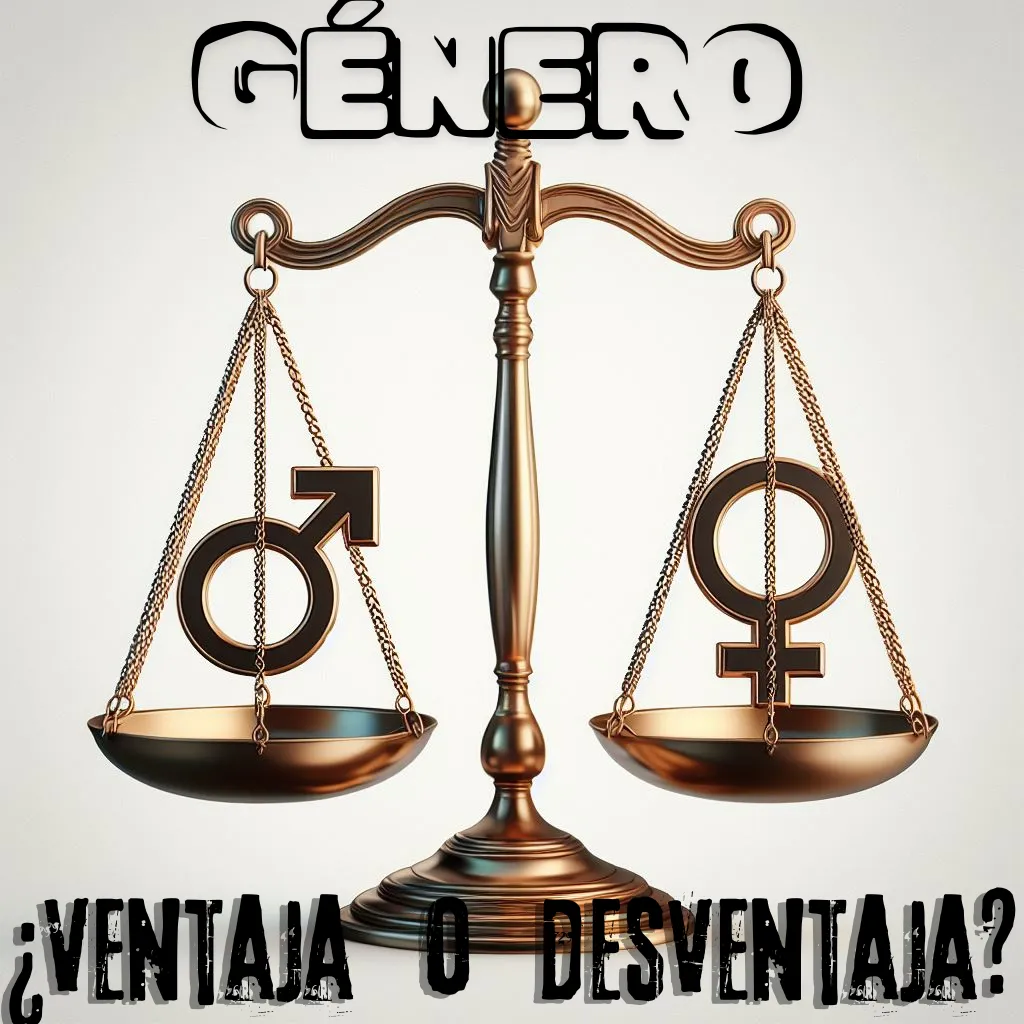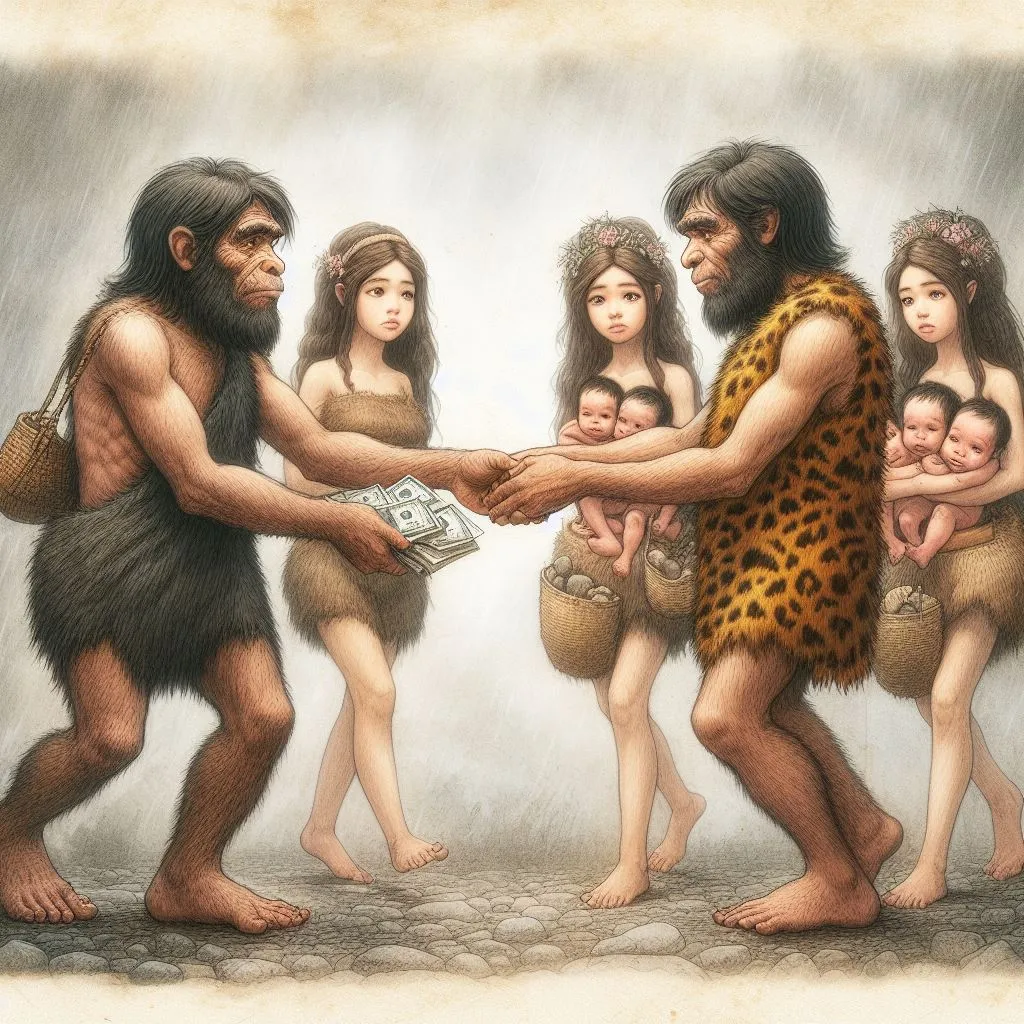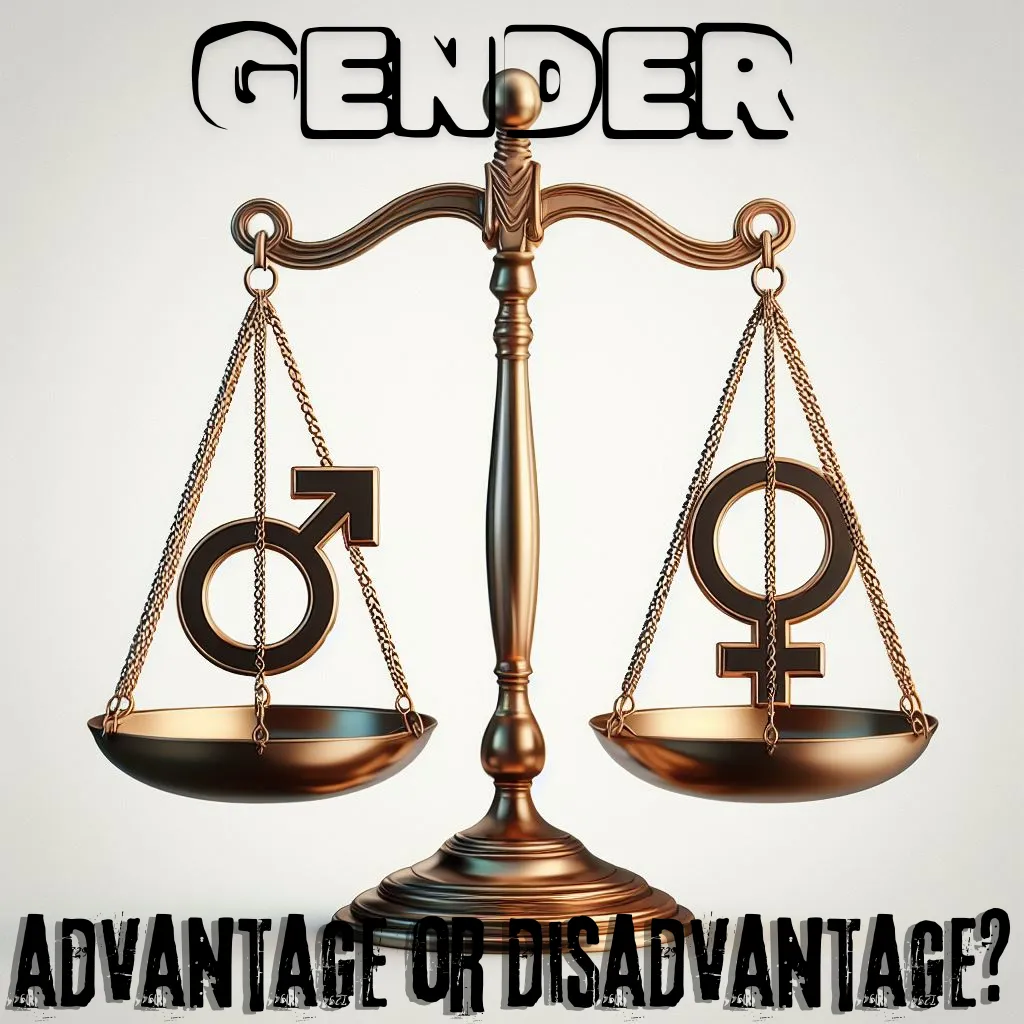
¿Género como ventaja o desventaja? La respuesta menos reflexionada que me viene a la mente es que el género no es en sí mismo ventajoso o no, sino el sistema de representaciones que construimos en torno al mismo, que nos hacen, en dependencia del contexto, dotar a uno u otro de beneficios o perjuicios.
Muchos y muchas estaremos de acuerdo en el hecho de que vivimos en un sistema puramente patriarcal en el que no se puede hablar de relativismo cultural, puesto que todas las sociedades y culturas se basan en la superioridad masculina en detrimento de lo femenino, se pudiera decir que lo femenino está en desventaja. En ese sentido es necesario hacer énfasis en que se habla de lo masculino y lo femenino, no del hombre y la mujer; ambos pueden encarnar tanto lo masculino como lo femenino. ¿Pero qué es lo masculino y qué es lo femenino?
Ambas categorías son construcciones sociales binarias que históricamente se han asociado al sexo biológico de cada uno de nosotros y nosotras. O sea, lo esperado para cada persona con uno u otro genital visible. De ahí que se pueda hablar de sexismo o de estereotipia de género cuando los esquemas mentales en torno a cada uno resultan arcaicos e inflexibles, y no dan lugar a la individualidad de las personas ya que, en la actualidad -y de hecho, siempre, solo que antes no se analizaban estas cuestiones- no existe una única forma de ser hombre o mujer, sino disímiles experiencias de construirse en uno u otro género. Además, al ser categorías sociales, varían en dependencia de las variaciones culturales de cada sociedad, puesto que ser hombre o mujer en Brasil, no será igual a ser hombre o mujer en Escocia.
A pesar de ello, la visión blanca, cis, hetero, patriarcal y normativa vigente aún en nuestros tiempos marca una pauta en el que, al asociarse lo femenino a la mujer, esta queda en desventaja, ya que lo femenino ocupa el lado débil; aquello que se puede someter, mientras que del lado masculino asociado desde el sentido común con el hombre, queda lo fuerte y dominante. Pero esto no es casual ni consecuencia de la supuesta debilidad biológica de la mujer (la única debilidad biológica de la mujer es su período de gestación con el que el hombre no necesita lidiar). Si pensáramos que todo es una cuestión de de fortaleza/debilidad, la humanidad hubiese quedado doblegada ante el dominio de los animales. Pero si la justificación es la inteligencia de la raza humana, entonces no tiene sentido excluir de la especie a la mujer.
No, ni siquiera se puede pensar que haya sido consecuencia de la división sexual del trabajo que se produjo en los orígenes de la humanidad, porque este hecho en vez de ser causa, es consecuencia. Incluso antes de dicha división sexual del trabajo, ya existía una jerarquía de los sexos porque el hombre comprendió que la mujer no traía hijas e hijos al mundo por la reencarnación de clanes antepasados mientras el acto sexual se limitaba a ser un mero ritual, sino porque ambos jugaban un papel fundamental en la reproducción, sobre todo él ya que, categorialmente, la mujer era simplemente la que producía mientras él aportaba el esperma como material necesario.
Es así cómo el hombre decidió comenzar una dominación histórica que llega hasta nuestros días, debido a que controlando la sexualidad de la mujer, y por tanto, separándola simbólicamente de la reproducción al relegarla a ser meramente una matriz, lograba no solo reproducir a alguien diferente (otra mujer), sino también a sí mismo. Por eso la mujer adquirió valor de cambio entre clanes; el hombre aceptó perder el poder cometer incesto, para poder abrirse a intercambiar mujeres como un bien más de su propiedad.

Esto, junto a la observación de las diferencias concretas de los sexos que dio lugar a un pensamiento binario de las cosas, provocó que la mujer históricamente fuera alienada de sí misma y relegada a tener que cumplir con el mandato masculino. Es de ahí que nacen las disímiles variaciones culturales que ponen a la mujer en desventaja. Por citar alguna, se tiene que en varias sociedades antiguas al ser la mujer la que se asocia a la fertilidad, por inversión categorial es ella la culpable la infertilidad. Por tanto, se asumía a priori que si la mujer daba hijas o simplemente no era capaz de concebir, pues era a causa de su voluntad y era recompensada con los más diabólicos maltratos. Incluso, el mismísimo Aristóteles planteaba que la mujer, de no ser controlada por el hombre y bendecida con el esperma, se daba a una reproducción caótica y descontrolada.
Y como estas, muchas más variaciones, pero siempre partiendo de la inferioridad femenina y la necesaria guía masculina. De hecho, a las mujeres prepúberes y menopáusicas se les asociaba en ocasiones capacidades masculinas, precisamente porque o no habían obtenido aún el potencial de concebir, o bien lo habían perdido. Las brujas del medioevo son un buen ejemplo de ello y de cómo eran temidas precisamente por ser mujeres menopáusicas a las que se le achacaban poderes inimaginables. Y por supuesto, siempre que una mujer destacaba en algo, como por ejemplo, ocupar cargos asociados a los hombres, lógicamente era porque era portadora de capacidades masculinas que la hacían honorable.
En conclusiones, se puede decir con toda la seguridad del mundo que las luchas por la emancipación de las mujeres, como por ejemplo, la igualdad de derechos, la lucha contra el acoso, oportunidades laborales y tal, son muy necesarias. Sin embargo, la más importante y necesaria sería la lucha de las mujeres por el derecho a la anticoncepción, porque apunta directamente al origen mismo y causa de la dominación. Al la mujer recuperar el poder sobre su sexualidad y trascender el rol histórico de matriz de reproducción necesario antes para convivir entre clanes, y ahora, para mantener una fuerza de trabajo económicamente rentable que sirva de sostén a las altas esferas masculinas -y capitalistas-, ambos géneros estaremos, por fin, en igualdad de condiciones.
English version

Gender as an advantage or disadvantage? The least thought-out response that comes to mind is that gender itself is neither advantageous nor not, but rather the system of representations that we construct around it, which, depending on the context, lead us to endow one or the other with benefits or drawbacks.
Many of us will agree that we live in a purely patriarchal system in which cultural relativism cannot be discussed, since all societies and cultures are based on male superiority at the expense of the feminine; it could be said that the feminine is at a disadvantage. In this sense, it is necessary to emphasize that we are talking about the masculine and the feminine, not about the man and the woman; both can embody both the masculine and the feminine. But what is masculine and what is feminine?
Both categories are binary social constructions that historically have been associated with the biological sex of each of us. That is, what is expected for each person with one visible genital or the other. Hence, sexism or gender stereotyping can be discussed when the mental frameworks around each one are archaic and inflexible, not allowing for individuality since, in the present day -and in fact, always, only these matters were not analyzed before- there is not a single way of being a man or a woman, but various experiences of constructing oneself in one gender or the other. Also, being social categories, they vary depending on the cultural variations of each society, since being a man or woman in Brazil is not the same as being a man or woman in Scotland.
Nevertheless, the white, cis, heterosexual, patriarchal, and normative perspective still prevalent in our times sets a pattern in which, by associating the feminine with the woman, she is disadvantaged, as the feminine occupies the weak side; that which can be subjugated, while on the masculine side associated from common sense with the man, what remains is the strong and dominant. But this is neither random nor a consequence of the alleged biological weakness of women (the only biological weakness of women is their gestation capacity). If we were to think everything is a matter of strength/weakness, humanity would have been subdued before the dominion of animals. However, justifying it with the intelligence of the human race, then it doesn't make sense to exclude women from the species.
No, not even can it be thought that it was a consequence of the sexual division of labor that occurred in the origins of humanity, because instead of being a cause, it is a consequence. Even before this sexual division of labor, there was already a hierarchy of the sexes, because the man understood that women did not bring daughters and sons to the world through the reincarnation of ancestral clans while the sexual act was limited to being a mere ritual, but because both played a fundamental role in reproduction, especially him, as categorically the woman was simply the producer while he contributed the necessary sperm as material.
This is how man decided to start a historical dominance that reaches our days, since by controlling women's sexuality, and therefore, symbolically separating her from reproduction by relegating her to merely a womb, he not only managed to reproduce someone different (another woman), but also himself. That's why women acquired exchange value among clans; men accepted losing the power to commit incest, in order to be able to exchange women as another commodity in their possession.

This, along with the observation of concrete sex differences that led to a binary thought of things, caused women to historically be alienated from themselves and relegated to having to fulfill the male mandate. It is from there that the diverse cultural variations arise, placing women at a disadvantage. For example, in various ancient societies, since women are associated with fertility, inversely, they were blamed for infertility. Therefore, it was assumed a priori that if a woman gave birth to daughters or simply could not conceive, it was due to her own will and she was rewarded with the most diabolical mistreatment. Even Aristotle himself argued that women, if not controlled by men and blessed with sperm, would engage in chaotic and uncontrolled reproduction.
And like these, many more variations, always starting from female inferiority and the necessary male guidance. In fact, prepubescent and menopausal women were sometimes associated with male capabilities, precisely because they had not yet achieved the potential to conceive, or had lost it. The medieval witches are a good example of this and how they were feared precisely because they were menopausal women who were attributed unimaginable powers. And of course, whenever a woman excelled in something, such as holding positions associated with men, it was obviously because she possessed male qualities that made her honorable.
In conclusion, it can be said with all the certainty in the world that the struggles for women's emancipation, such as equality of rights, combating harassment, job opportunities, and the like, are very necessary. However, the most important and necessary would be women's fight for the right to contraception, because it directly targets the very origin and cause of domination. By women reclaiming power over their sexuality and transcending the historical role of reproduction matrix, once necessary for clan coexistence, and now, to maintain an economically profitable workforce that serves as a support to the high male -and capitalist- spheres, both genders will finally be on equal footing.

Créditos | Credits
Bibliografía consultada | References consulted
Imágenes utilizadas | Images used
Todas las imágenes utilizadas son de mi propiedad y fueron generadas utilizando Designer de Copilot y editadas en Canva | All images used are my own property and were generated using Designer from Copilot and were edited using Canva.
Traducción | Translation
Te puede interesar | You may be interested in
La procrastinación más allá de la pereza | Procrastination beyond laziness [ES/EN]
Las normas sociales y la grupalidad: reflexiones | Social norms and groupness: reflections [ES/EN]
Las personas introvertidas y otros demonios | Introverted people and other demons [ES/EN]
El amor no lo puede todo | Love can't do everything [ES/EN]
El llanto como forma de validarnos | Crying as a way to validate ourselves [ES/EN]
¿Depresión de alto funcionamiento? | High-functioning depression? [ES/EN]

